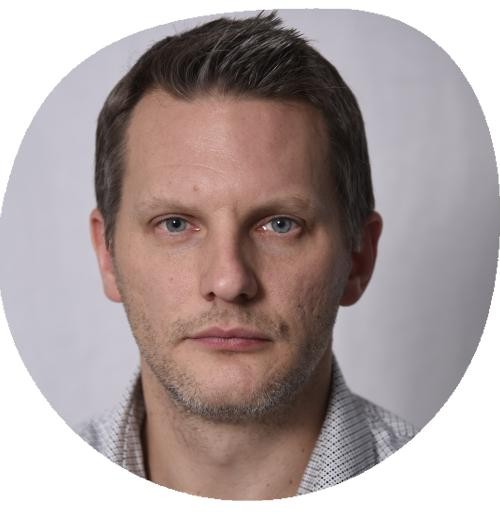Updating the economic immigration policy: what do you need to know?
Recently, migration has been an issue that has regularly dominated the media. Some see it as a solution to the tight labour market, while others fear the consequences of too many people entering the country. On 8 March 2024, the Flemish government approved an updated economic immigration policy that will both tighten and relax measures. What does this mean in practice? Employees who are nationals of countries outside the European Economic Area (EEA, i.e. the EU, Norway, Iceland, Liechtenstein) and Switzerland will in principle have to apply for a combined permit or work permit before being allowed to work in Belgium.
From 1 May 2024, the new rules will come into force. What will stay the same and what will change? We’ve created an overview for you.
High and medium skill levels
The assumption is still that there is a shortage of profiles with high and medium skill levels. This means that employers do not have to conduct prior labour market research in order to be able to prove that they cannot find employees on the Belgian and European labour market who are suitable to perform jobs within a reasonable period of time.
Conditions for high skill levels
- Must have at least a higher education or university degree.
- Must earn a minimum average gross annual salary of EUR 46,632 in 2024. (A deviation from this minimum wage was already in place for employees under 30 and nurses. They must earn a minimum gross annual salary of EUR 37,305.60 in 2024).
The new legislation will also extend this lower salary to teachers.
Conditions for medium skill levels
- Must earn at least the salary of a medium-skilled worker.
- Must be employed for at least 80% of a full-time job.
The definition of who is considered as medium-skilled is based on a list that is compiled every two years by the Flemish government. The current list has 29 jobs, but the list will be updated more quickly from now on, with the aim of responding more flexibly to shortages in skilled workers.
How do you qualify as a medium-skilled person? The government generally requires the employee’s CV, proof of experience and a diploma or certificate demonstrating that the employee holds the necessary qualifications. A detailed description of the job and the range of duties must also be submitted.
Tightening the ‘Other’ category
If an employee does not meet the conditions for high and medium skill levels, then the ‘Other’ category is an option. Whereas previously a combined permit could be requested for any job, from now on this will only be possible for employees who:
- have minimal levels of education (from level 2 e.g. (special) secondary level);
- are employed for at least 80% of a full-time job;
- perform jobs listed in the VDAB’s bottleneck profession study.
Currently, this list has 241 jobs. In the ‘Other’ category, employers must demonstrate that they cannot find suitable workers in Belgium and the EEA. They do so by publishing vacancies on the VDAB and EURES platforms for at least 9 weeks. Employers must also seek active intermediation from the VDAB in the search for suitable employees.
Employers may only recruit outside the EEA by applying for a combined permit if no suitable candidates are found. This means that for jobs that are not on this list and that also do not qualify for the high or medium-skilled category, there is no longer an option to recruit outside the EEA.
Combating abuse and exploitation: extension of grounds for refusal and withdrawal
The Dienst Economische Migratie (Economic Migration Department) decides on the granting of combined permits. This service does so by investigating whether employees fulfil the set conditions (e.g. diploma requirement, necessary experience, etc.) and also by checking employers who submit applications.
The new policy provides for an extension of the grounds for refusal: for example, the government can refuse an application if it considers that the employer's creditworthiness is unfavourable or the company has been in existence for less than 3 years or has no staff yet. Among other things, the assessment will take into account the specific circumstances of each case, the interests of the employee in question, as well as the economic interest of the employer.
Flexi-jobs
Employees who have a combined permit are now also allowed to do flexi-jobs without having to apply for additional permission. In addition to the conditions for a flexi-job, employees must be employed for at least 80% of a full-time job and must have a combined permit (a B work permit does not qualify).
European Blue Card and seasonal workers
There are also some changes regarding the rules on the European Blue Card:
- Employees will now be required to have at least a diploma with qualification level 6 (university/college – Bachelor’s degree).
- The gross annual salary will increase to EUR 60,622 in 2024.
- Employees will be able to move from one employer to another after just 1 year (not the current 2 years) without the new employer having to apply for a new European Blue Card, provided that the employee in question still holds a valid European Blue Card.
For seasonal workers who fall into the ‘Other’ category, there are a number of deviations. For instance, there is no requirement to be employed for at least 80% of a full-time job and the vacancy must only be published for 3 weeks. From now on, it will also be easier for seasonal workers to change employers through a simple notification.
Extension of a number of exemptions for temporary employment in Belgium
The new legislation also expands a number of exemptions. For instance, permission to work is no longer required in the case of temporary commercial activities. Specialised technicians, guides and translators/interpreters can also be exempted when coming to Belgium temporarily.
A clear view on international employment
Want to make sure all your administration is legally correct? Acerta Consult’s Tax & International team is here to guide you and make your life easier throughout this process.

Written by
Managing consultant Tax & International


